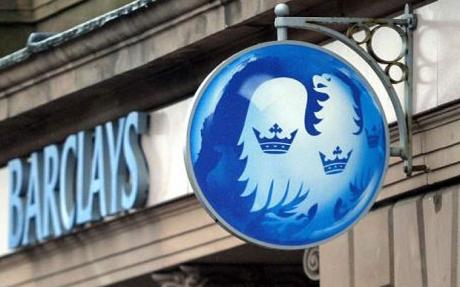Politics reporter Trisha Chowdhury looks into the recent Barclays scandal.
Ever since the Barclays Libor rate-fixing scandal was unearthed, there has been a political storm. PeopleÔÇÖs faith in BritainÔÇÖs banking sector is slowly sublimating. Though many key people involved are already in the line of fire, more of this scandal is being uncovered.
[pullquote]The Barclays scandal has created a huge mess for the entire banking and┬áfinancial sector of Britain[/pullquote]Libor is the London InterBank Offered Rate set by the British Bankers’ Association (BBA), and is widely considered to be one of the most important interest rates in the financial sector. These rates are a benchmark for a vast proportion of daily transactions, but between 2005 and mid-2012, Libor rates were fixed by traders at Barclays. This scandal has had tremendous global implications and is being investigated by financial regulators from all over the world. According to a report by the Financial Services Authority (FSA), these activities were not limited just to Barclays staff in the UK, external traders based anywhere from New York to Tokyo are also implicated.
The scandal was admitted by Barclays on June 27th. Following this, the bank has been fined by several financial institutions, including £59.5 million by the FSA, £102 million by the US Department of Justice and £128 million by the Commodity Futures Trading Commission (CFTC). Altogether, the total amount that the bank is expected to pay is close to £290 million. As of July, the Serious Fraud Office (SFO) is investigating the scandal as a criminal investigation and this could lead to the accused facing criminal charges.
[pullquote]The highly credible MoodyÔÇÖs has downgraded Barclays’ credit rating outlook from ÔÇÿstableÔÇÖ to ÔÇÿnegativeÔÇÖ[/pullquote]The Barclays organisation has suffered a serious loss of reputation resulting from the manipulation of Libor. Many of the bankÔÇÖs top officials have had to resign to avoid further degradation of the bankÔÇÖs reputation: Chairman Marcus Agius, Chief Executive Bob Diamond and Chief Operating Officer Jerry Del Missier. Agius, however, has agreed to stay until DiamondÔÇÖs replacement is found. Surprisingly enough, shareholders were against DiamondÔÇÖs resignation; however, regulators had lost faith in him and this led to his resignation. The franchiseÔÇÖs reputation has also gone down among credit rating agencies. The highly credible MoodyÔÇÖs has downgraded Barclays’ credit rating outlook from ÔÇÿstableÔÇÖ to ÔÇÿnegativeÔÇÖ.
Andrew Tyrie, chairman of the Treasury Select Committee, was quickly earmarked by the Prime Minister to head a parliamentary inquiry into the banking sector, but its formation was not without controversy, causing a minor storm in Westminster. Ed Miliband and the Labour Party had hoped for a fully independent, Leveson-style judicial enquiry. This option, however, was overruled and rejected by Parliament, and the cross-party internal enquiry was established.
The Chancellor, George Osborne, is in full support of the enquiry and said, “I think we have got a really good set of MPs and some real experts in the House of Lords who can get to the bottom of what happened quickly so we can change the law and make sure it doesn’t happen again.”
Meanwhile, Libor emails recently published showed government involvement in the rate-fixing scandal. The Cabinet Secretary, Jeremy Heywood, and Deputy Governor of The Bank of England, Paul Tucker, apparently exchanged a series of emails, showing the governmentÔÇÖs apprehension at the high Libor rates and BarclaysÔÇÖ involvement in it. However, it was concluded that none of the emails tend to suggest that Tucker influenced Diamond to reduce the Libor rates, though there was an occasion where a phone call by Paul Tucker to Bob Diamond was misinterpreted by the former Del Missier, to under-report BarclaysÔÇÖ Libor rates.
The Barclays scandal has created a huge mess for the entire banking and financial sector of Britain; indeed this scandal looks set to affect many more banks. The government should focus solely on this one issue and handle the situation with great cautiousness in order to ensure that such an incident is not repeated again.
As the enquiry proceeds, more information is bound to be revealed and we can only hope that the true offenders are found in due course.





Add Comment